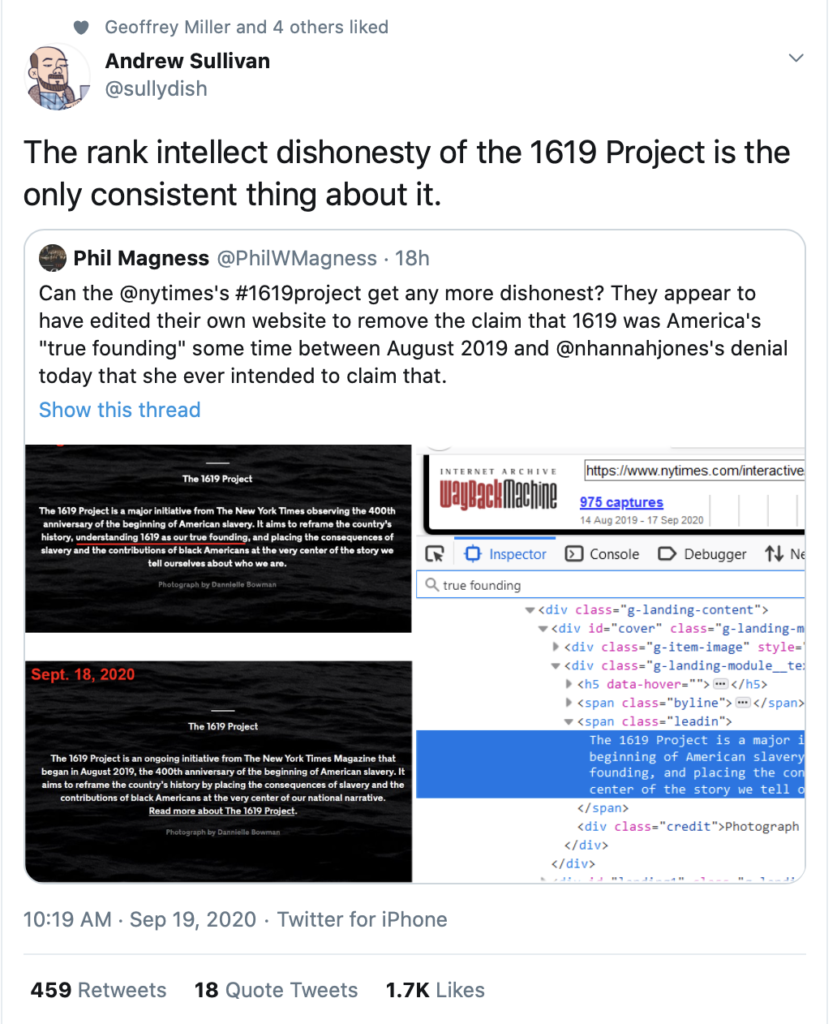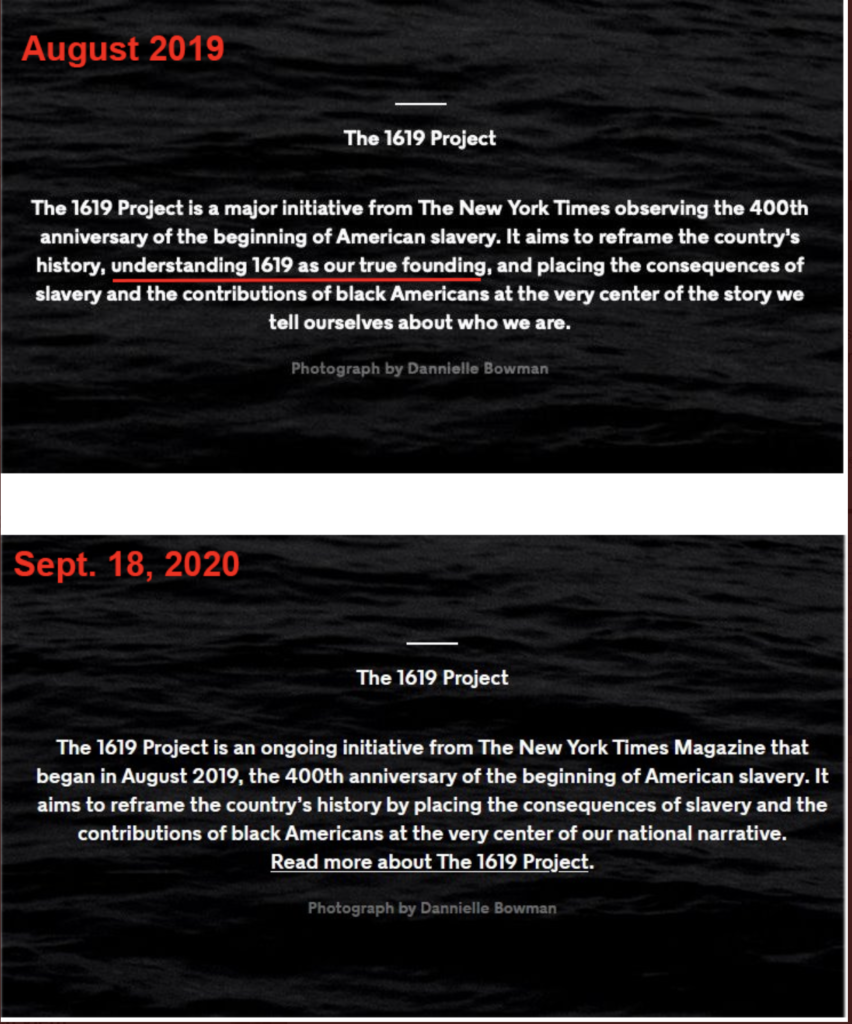Andrew Sullivan didn’t miss this NYT stealth retreat on the 1619 Project, a non-historical “history” of the U.S.:
NYT’s Revisionist History About Revisionist History
- Post author:Erich Vieth
- Post published:September 19, 2020
- Post category:Fraud / Media / Secrecy / Silence / snake oil
- Post comments:2 Comments
Erich Vieth
Erich Vieth is an attorney focusing on civil rights (including First Amendment), consumer law litigation and appellate practice. At this website often writes about censorship, corporate news media corruption and cognitive science. He is also a working musician, artist and a writer, having founded Dangerous Intersection in 2006. Erich lives in St. Louis, Missouri with his two daughters.




Phillip W. Magness comments at Quillette:
Andrew Sullivan follow-up Tweet: